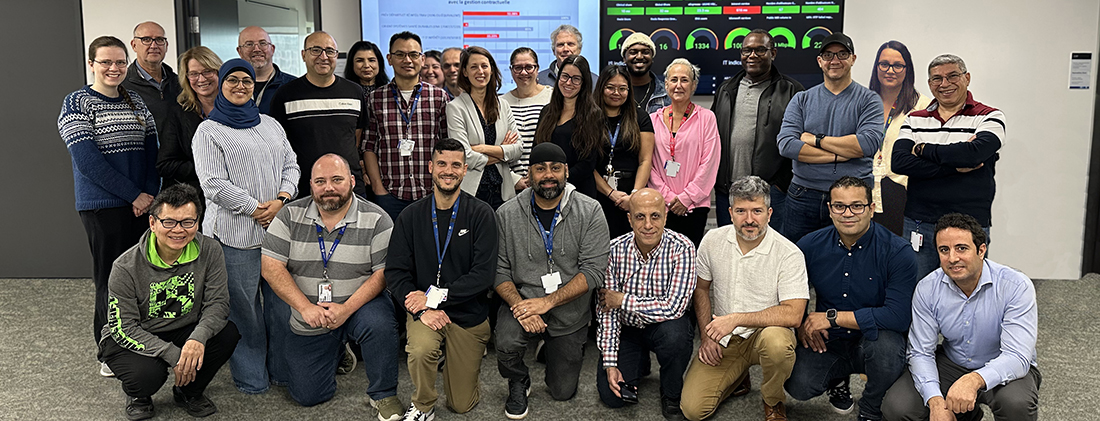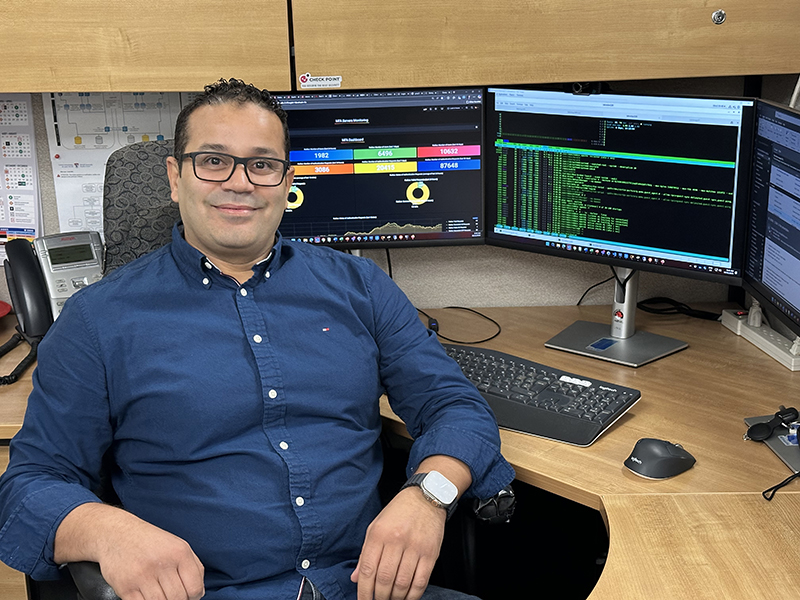In healthcare, IT is vital: part 4 of 4 - Invisible IT at the service of patients

You can work in information technology in many sectors; however, in a hospital, it’s different. Every outage can slow a diagnosis, every delay can postpone care, and every security breach can threaten the confidentiality of some of the most sensitive data. Protecting patients, countering increasingly sophisticated cyber threats, and maintaining a huge network that is active day and night: these are unique responsibilities at the heart of the hospital environment.
Behind these challenges are passionate women and men who have chosen to apply their expertise in the service of healthcare. Their work is measured not just in data, but in lives. Over the past few weeks, we have introduced you to the work of Patrick McClintock, Raif El-Chabab, and Camille Francoeur. Here is the final part of our series on IT in healthcare. The people behind the technologies we use every day.
Behind the scenes: Invisible IT at the service of patients
As a Systems Administrator, Walid Abssi is part of an IT team responsible for a complex infrastructure that supports healthcare — servers, storage, security, critical applications. In a highly digitalized hospital, even the slightest interruption can directly affect medication delivery, medical tests, and the continuity of patient care.

“In hospital IT, our priority is to ensure continuity of services. We constantly monitor the infrastructure and anticipate problems so they never reach the clinical teams,” he explains. His role involves ensuring systems are always up and running, cybersecurity, and system resilience, often in hybrid environments ranging from Windows to Linux, including virtualization and distributed storage.
In this role, sleepless nights are part of the job when it comes to restoring essential services. The motivation is always the same: making sure doctors, nurses, and pharmacists can work without interruption. “Even though our work happens behind the scenes, it is essential: every stable system, every available application contributes, in its own way, to the quality and safety of patient care. It’s a great source of pride to have this role.”
Experts serving healthcare
Whether it’s deploying clinical applications, analyzing data, supporting newborn screening, or maintaining IT infrastructure, IT professionals share a common belief: in healthcare, IT is not just about systems. It is a direct commitment to patients.